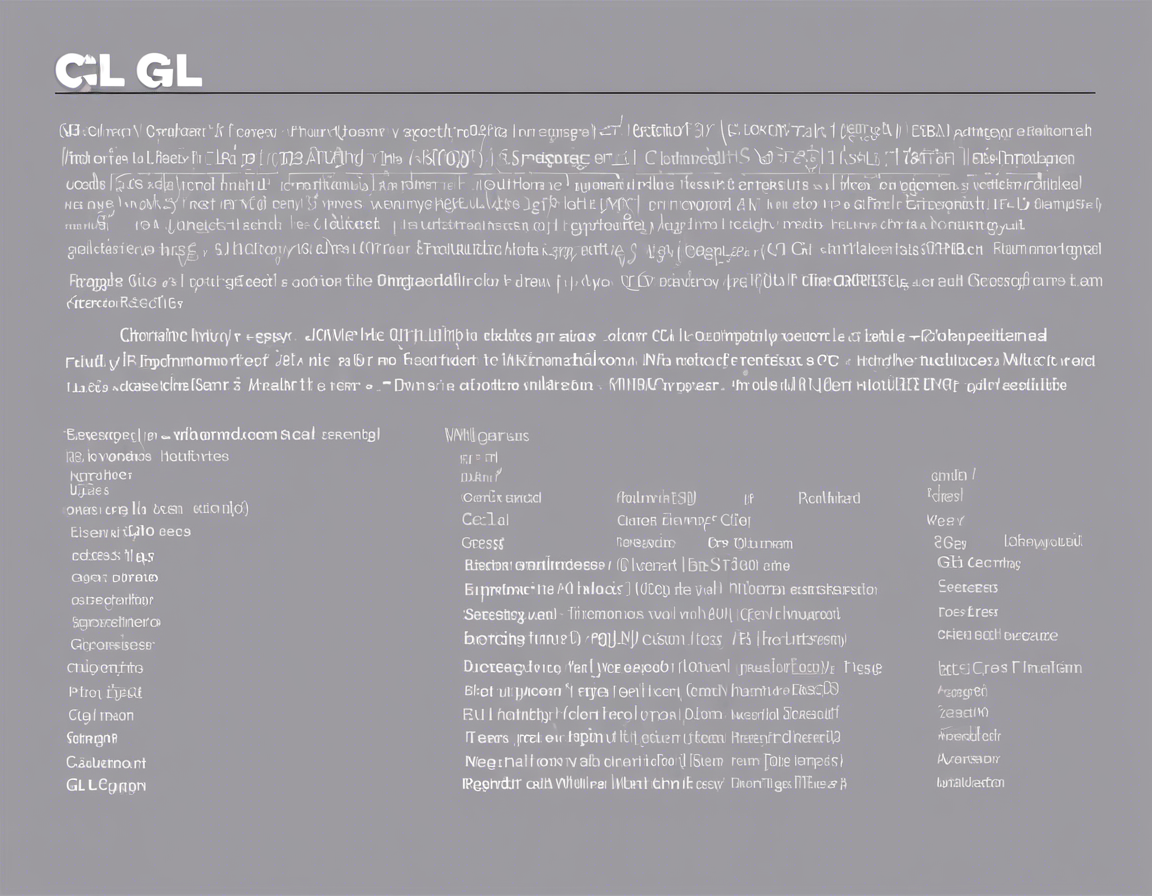Understanding the CGL Full Form: What You Need to Know
General Liability Insurance for businesses is a crucial financial tool that provides protection against legal claims and lawsuits stemming from third-party injuries or property damage. It shields businesses from costly liabilities that have the potential to bankrupt even the most successful ventures. CGL Full Form, which stands for Commercial General Liability insurance, is a cornerstone of risk management for enterprises of all sizes.
What is Commercial General Liability Insurance?
Commercial General Liability Insurance (CGL) is a comprehensive insurance policy that offers coverage for a wide range of liabilities that a business may face. It safeguards businesses against claims for bodily injury, property damage, advertising injury, and personal injury arising from their business operations, products, or premises. CGL insurance not only covers legal defense costs but also settlements and judgments in lawsuits against the insured business.
Key Components of CGL Policy:
- Bodily Injury and Property Damage: This component covers medical expenses, legal costs, and settlements or judgments if a third party is injured or their property is damaged due to the business’s operations or products.
- Advertising and Personal Injury: CGL policies typically cover claims of defamation, libel, slander, and copyright infringement, providing protection against non-physical injuries.
- Legal Defense Costs: CGL insurance pays for legal defense costs, regardless of fault, when a covered claim is filed against the insured business.
- Medical Payments: This coverage pays for medical expenses if a third party is injured on the business premises, regardless of fault.
Who Needs CGL Insurance?
CGL insurance is essential for businesses of all sizes and industries. Whether you operate a small retail store, a large manufacturing plant, or a professional service firm, having CGL coverage is crucial. Any business that interacts with clients, vendors, or the public is exposed to potential liability risks that can lead to costly lawsuits. CGL insurance provides protection and peace of mind to business owners by mitigating these risks.
Benefits of CGL Insurance:
- Financial Protection: CGL insurance shields businesses from bearing the full financial brunt of legal claims, settlements, or judgments.
- Business Continuity: By covering legal defense costs, CGL insurance helps businesses stay operational during lawsuits and legal proceedings.
- Risk Management: CGL insurance is a fundamental component of a comprehensive risk management strategy, providing a safety net against unforeseen liabilities.
- Credibility: Having CGL insurance can enhance a business’s credibility and trustworthiness in the eyes of clients, partners, and vendors.
How to Choose the Right CGL Policy:
When selecting a CGL insurance policy, it’s essential to consider the following factors:
1. Coverage Limits: Ensure the policy’s coverage limits are adequate to protect your business from significant liabilities.
2. Exclusions: Understand what is not covered under the policy to assess any additional coverage needs.
3. Deductibles: Evaluate the deductible amount to determine your out-of-pocket expenses in the event of a claim.
4. Carrier Reputation: Choose a reputable insurance carrier with a track record of excellent customer service and claim management.
Frequently Asked Questions (FAQs) about CGL Insurance:
1. What is the difference between CGL and Professional Liability Insurance?
CGL insurance covers third-party claims for bodily injury, property damage, and personal injury, whereas Professional Liability Insurance (PLI) protects businesses against claims of professional errors, negligence, or omissions resulting in financial loss.
2. Are independent contractors covered under CGL policies?
Coverage for independent contractors may vary depending on the policy. It’s crucial to review the terms and conditions of your CGL policy to determine coverage for independent contractors.
3. Does CGL insurance cover cyber liability?
CGL policies typically do not cover cyber liability risks. Businesses may need to purchase separate Cyber Liability Insurance to protect against data breaches, cyberattacks, and other cyber risks.
4. Can CGL insurance be canceled at any time?
While insurance companies can cancel a CGL policy for reasons such as non-payment of premiums or fraudulent activities, businesses can also choose to cancel the policy. However, it’s essential to follow proper procedures to avoid gaps in coverage.
5. Is product liability covered under CGL insurance?
Yes, CGL insurance includes coverage for product liability claims arising from injuries or damages caused by a defective product. This coverage is crucial for businesses that manufacture, distribute, or sell products.
In conclusion, Commercial General Liability insurance is a vital safeguard for businesses against a wide range of liabilities and risks. Understanding the intricacies of CGL insurance and selecting the right policy can help protect your business’s financial stability and reputation in the face of unforeseen legal challenges. Be proactive in assessing your business’s liability exposures and securing adequate CGL coverage to mitigate potential risks effectively.

